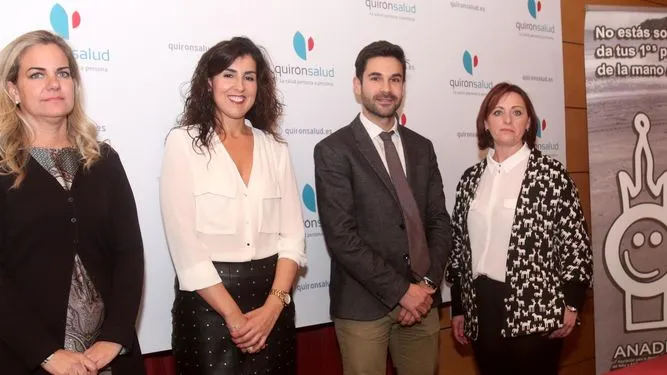The Quirónsalud Sacred Heart Hospital and the Association for the Care and Defense of the Diabetic Child of Seville (ANADIS) have held a medical-patient meeting on type I diabetes on Friday, under the title 'Topics of interest in patients in patientsWith type I 'diabetes, in which a large group of diabetic patients with the specialists in treating the disease have been tape.
As reported by Quirónsalud in a note this Saturday, the president of Anadis, Ana María Álvarez, explained that "the appointment is part of the activities carried out on the occasion of World Diabetes Day that was held last Monday, and hadAs a purpose gathering a group of diabetic patients who began in the association as children or adolescents and have already become adults, with the specialists who treat the disease, endocrine and psychologists, so that they could raise the doubts that arise about their illness, the latest therapeutic advances, pregnancy and pregnancy in diabetic patients, and how they affect anxiety and stress in diabetic patients. "
Psychologist Olga Sanz, with long experience in diabetic patients explained why stress causes sugar in diabetic patients."When we are stressed, we do not take care of the food, we eat in a uncontrolled way, we do not take care of ourselves, and sometimes more alcohol is consumed, which causes sugar to rise, this binds to hormones that are altered with stress such as theCortisol, glucagon or growth hormone that also affects, "he said.
For her part, Dr. Noelia Gros, Endocrine at Hospital Quirónsalud Sacred Heart, tried about pregnancy and pregnancy in diabetic patients.As indicated by the doctor, "diabetes mellitus, per se, does not entail a contraindication so that our patients are pregnant. It is important to conveGestation will allow a happy term pregnancy avoiding maternal-feet complications. "
The specialist has insisted that "the risks in pregnancy are high, both for the pregnant woman and for the fetus, if the mother does not have a thorough control of diabetes during pregnancy, even producing spontaneous abortions or fetal malformations."
The last block corresponded to Dr. Alberto Aliaga Verdugo, endocrine of Hospital Quirónsalud Sacred Heart, who made an exhibition on the latest therapeutic advances in the field of diabetes.
In the words of Dr. Aliaga, "the main research area in type 1 diabetes is currently directed towards the creation of the artificial pancreas. For this, new insulin pumps, methods and devices of glucose measurement less invasive than the traditional capillary glycemia are being developed, that provide data continuously and can be integrated into apps and smartphones. "He has also continued, "science advances in search of new insulins and treatments to prevent the appearance of the disease in genetically predisposed people."


